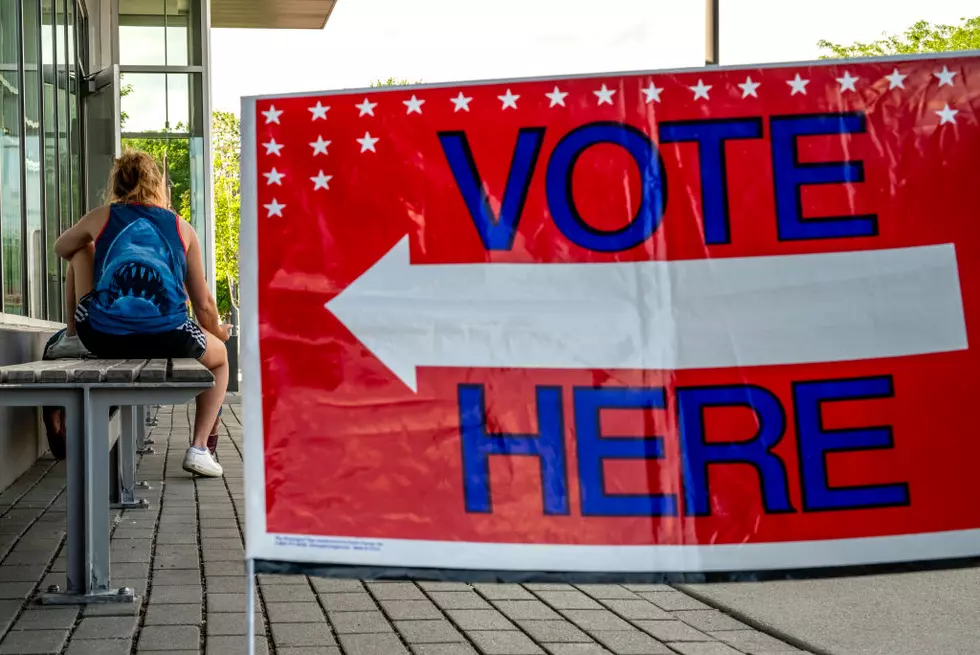
Poking and Prodding: Did CNN Debate Go Too Far?
NEW YORK (AP) — CNN poked and prodded for fault lines among Democrats running for president during both nights of debates this week, and that wasn't to everyone's liking.
The network took a hit on social media and among some critics for baiting candidates and provoking conflict. Drawing out differences in policy prescriptions and records, and seeing how politicians aspiring for the nation's highest office handle pressure, is precisely the point of a debate, however.
"If we were doing the debate again tomorrow, we would do it exactly the same way," Sam Feist, CNN's Washington bureau chief, said Thursday.
CNN reached 10.7 million people for Wednesday's second night of the debate, up 2 million from what a different batch of candidates reached the night before. Both nights were well below what NBC News had for the first round of debates in June. They had one thing in common, though: for both debates, the presence of former Vice President Joe Biden meant for a larger audience.
At the beginning of Wednesday's debate, CNN headed straight toward a conflict between Biden and Kamala Harris, whose clash over segregation was the most memorable moment of NBC's debate.
Addressing Harris, moderator Dana Bash noted that Biden had criticized her health plan as a "have-it-every-which-way approach and says it's part of a continuing pattern of equivocating about your health care stance. What do you say to that?"
After the two candidates went back and forth, Bash told Biden that New York Mayor Bill de Blasio "said Democrats who wanted to keep the private insurance industry are defending a health care system that is not working. What do you say to that?"
That pattern was repeated throughout the debate, like when moderator Jake Tapper said to Biden, "Sen. (Cory) Booker called your new criminal justice reform plan, quote, 'an inadequate solution to what is a raging crisis in our country.' Why is Sen. Booker wrong?"
The New York Times' James Poniewozik wrote that discord that erupted during the debate was multiplied by CNN's "smackdown aesthetic. You fight or you die — the price of attention is combat." The Washington Post's Hank Stuever said CNN was "conflict-obsessed."
Caroline Franke wrote in Variety that CNN hit the candidates with leading questions aimed more at starting fights than shedding light, and were looking for clips that would attract attention online and in reruns.
"They chase explosive moments, not the kind of kind of insight that people actually need to understand where a candidate stands," Franke wrote.
Stephen Farnsworth, a political scientist and author of "Presidential Communication and Character: White House News Management from Clinton and Cable to Twitter and Trump," argued in favor of more open-ended questions.
"The effort to provoke conflict went far overboard," he said. "A more useful approach would be to focus more extensively on the range of issues that the next president has to contend with."
The critical comments were echoed by many expressions of disgust on social media, although that's a venue where the negative often dominates.
"What this shows is that there are a lot of people out there among the Democrats who don't want to see what President Obama once called a circular firing squad," said Frank Sesno, head of George Washington University's School of Media and Public Affairs.
Many Democrats want to focus on defeating President Donald Trump instead of seeing a bloodletting within the party, but "that's what's supposed to happen now," Sesno said.
Booker displayed exactly that attitude when immigration reform was discussed. "We are playing into Republican hands who have a very different view," he said, "and they're trying to divide us against each other."
It's worth noting, however, that much of the conflict was generated by the candidates, not CNN. Sen. Kirsten Gillibrand, for instance, came prepared to confront Biden on what he wrote in a newspaper column decades ago. De Blasio tried to goad Biden into denouncing immigration policies of the Obama administration.
CNN could be faulted for giving short shrift to issues like climate change, but the network said it listened closely to what its audience cited as the most important issues.
Besides testing the candidates, the debates offer the Democrats a chance to refine and test its messages before taking on Trump in an election that's more than 15 months away.
Sesno, author of "Ask More: The Power of Questions to Open Doors," is a former CNN Washington bureau chief but said he isn't afraid to criticize his old network when merited. In this case, he said CNN planners clearly spent a lot of time thinking through the issues and framed the questions to cause meaningful and strong exchanges between the candidates.
"In my view, that's what a debate should be," he said.
More From WIBX 950



![President Joe Biden’s Old Upstate NY Home Is Now For Sale [PICS]](http://townsquare.media/site/964/files/2022/10/attachment-Joe-Biden-House-Cover.jpg?w=980&q=75)





